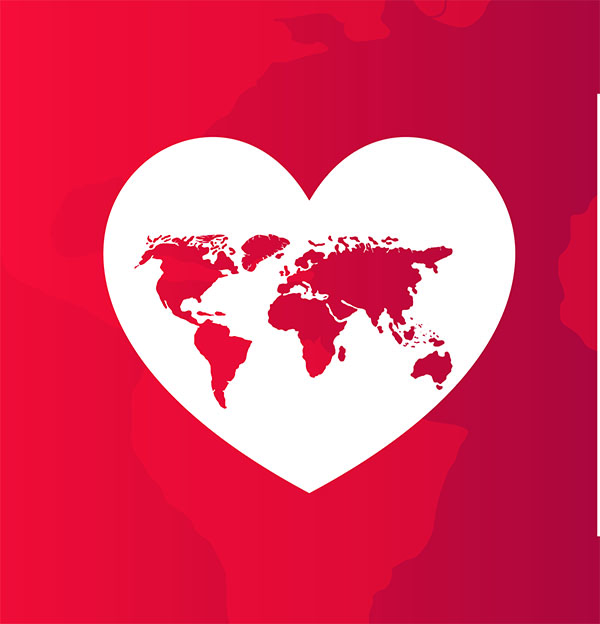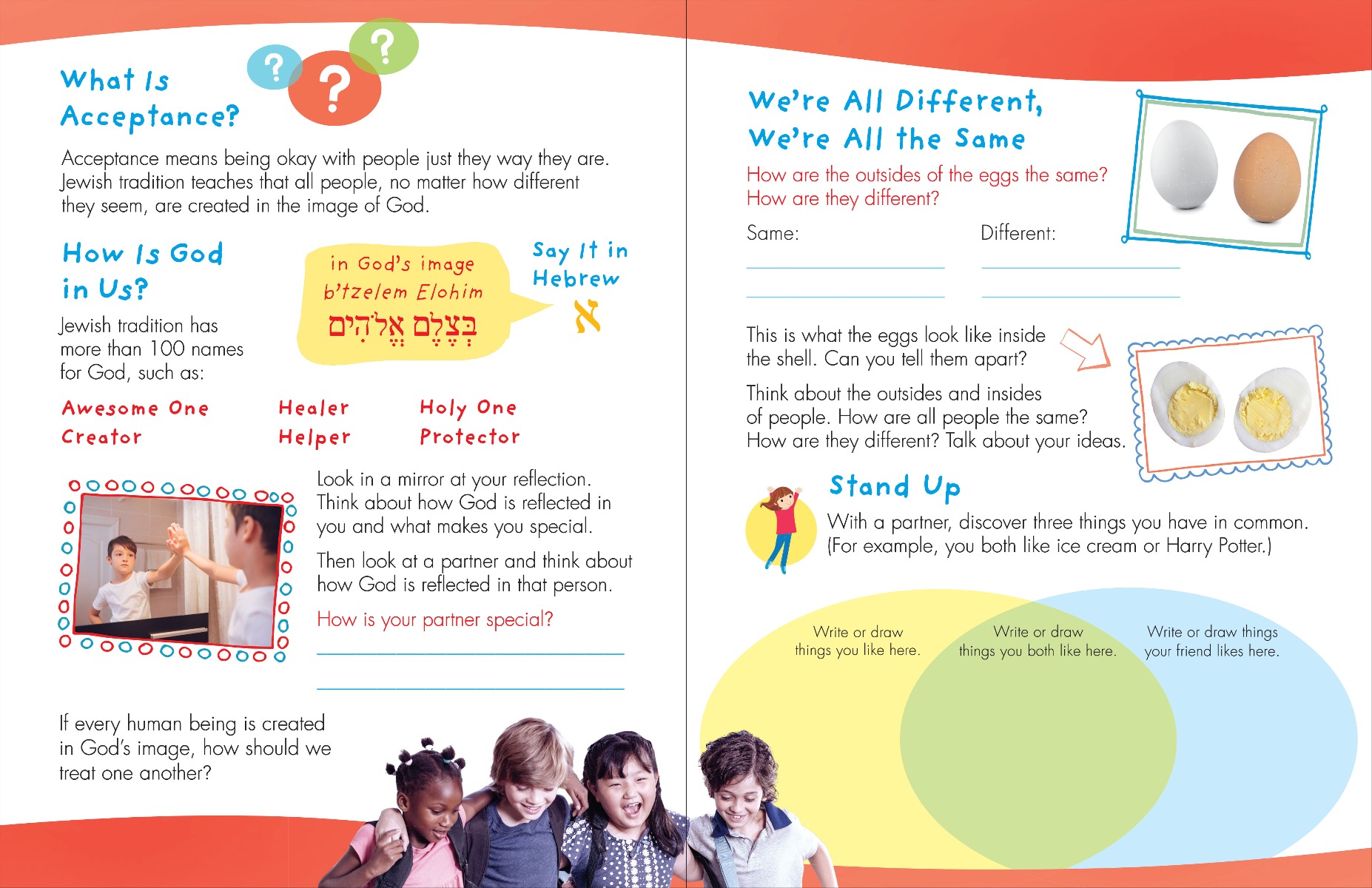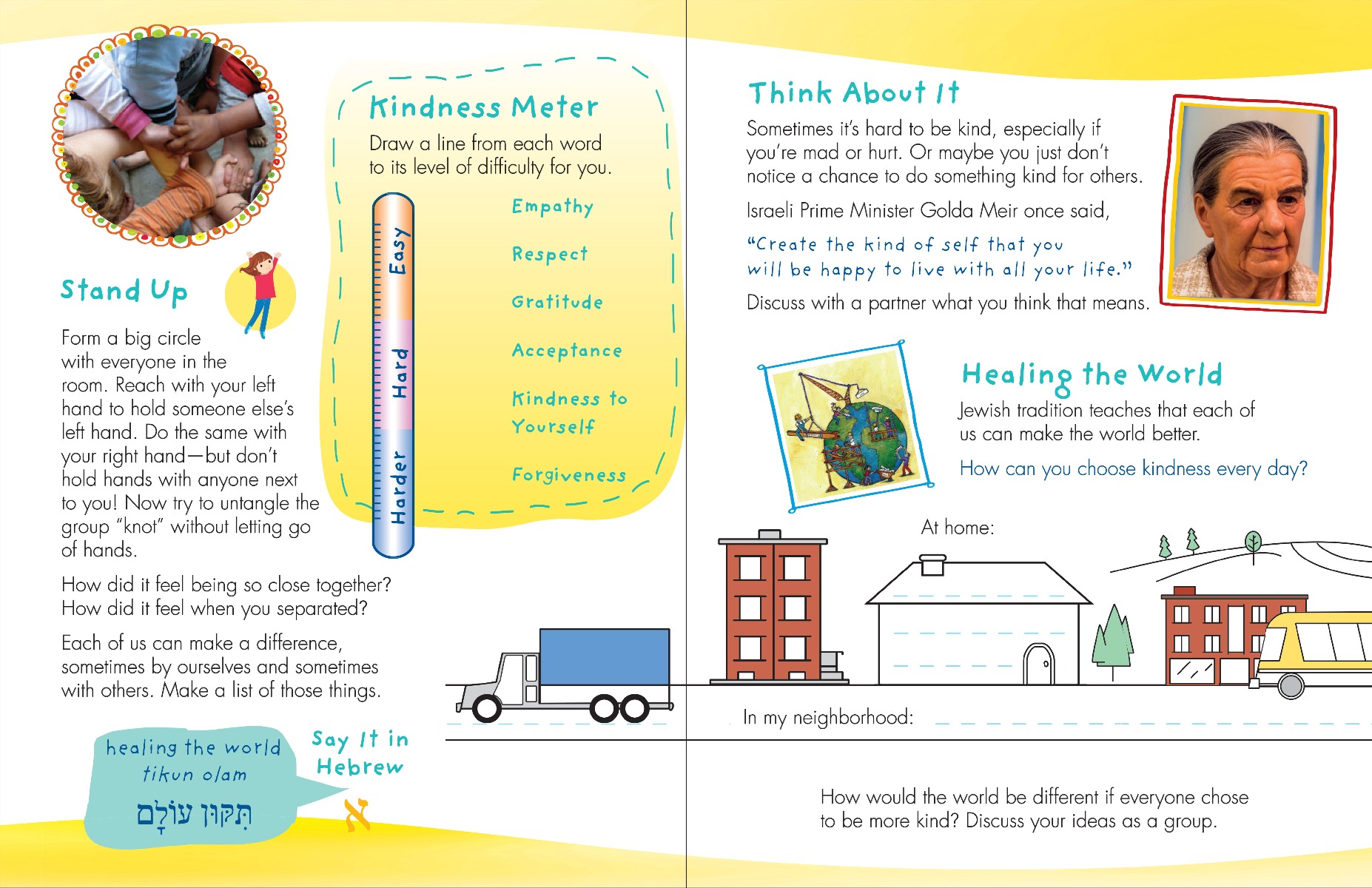Tools to Help Celebrate World Kindness Day on Nov. 13

This year has been downright lousy, as we have faced an unfathomable perfect storm of challenges—a pandemic, a battered economy, glaring exposure of an unequal justice system, and bitterly contested elections. The lone bright spot for many has been witnessing acts of kindness, of reaching out to each other, to help each other through.
Kindness is a skill, something we can all learn and practice. It also lies at the core of Jewish values, requiring us to make conscious choices about our actions. Kindness is worth teaching because it affects virtually all aspects of life, from how we see ourselves to how we treat others and navigate our place in the world.
November 13 is World Kindness Day, a global effort to highlight good deeds in our communities and "focus on the positive power and the common thread of kindness that binds us."
Here are some ways to teach and practice kindness.
All Ages
This exercise comes from Mindful.org: "Be kind even when you’re cranky. It’s easy to be kind when we’re in a good mood. When we’re struggling, not so much. So next time you feel frustrated, angry or hurt, refrain from speaking or acting immediately. Take a moment. Remember this practice by using an acronym… S-T-O-P.
S for “stop,” T for “take a breath,” O for “observe what’s happening in and around you,” and P for “practice responding rather than reacting.”
Grades K-2
The idea of chesed, or loving-kindness, is mentioned in the Torah more than 200 times, indicating its importance in Judaism. Let's Discover Kindness is a series of eight four-page folders that help make the concept concrete to young children.
From the folder about Acceptance comes the following activity: Show children two eggs (either real or images) - one white egg and one brown egg. Together, make a list of all the similarities and differencees between the eggs. Ask, "What other things are different on the outside and the same on the inside?" Transition to a discussion about people - make a list of what all people have in common (possible answers could include blood, hearts, brains, we want to be safe and healthy).
For a second activity, have children work with a partner to discover three things they have in common (both like chocolate ice cream or Harry Potter, perhaps). Then ask a pair of volunteers to share with the whole group.
Click the images below to download sample pages from this series.
Grades 3-5
This is an age when children are thining critically about right and wrong and the importance of the choices they make. Here is an activity from A Kids Mensch Handbook about the value of sh'lom bayit, peace in the home.
Start by asking children to complete the following sentence in their heads or on paper: "My favorite family memories are_____" Allow some to share with the whole group. Ask them what made those memories or events special. How were members of the family treating one another then?
Then tell the story of Joseph. Point out that Joseph chose to tell his dream to his family. Ask: "How did Joseph's choice affect his family?" "What could his brothers have done to preserve family peace?" " What could Jacob, Joseph's father, have done to prevent he conflict?" Encourage children to use the words kindness and respect in their answers.
Using simple materials such as construction paper, scissors, markers and staplers, give children a few minutes to cut the paper into several strips. Instruct each students to write their name on one strip of paper, then write the names of close family membres on other strips, one strip for each person. Then have them write positive adjectives that describe each person on the strip, and one thing they can do to be kinder to that person. Have them staple their strips into chains, and ask volunteers to share with the whole group.
Tweens and Teens
Kindness is more than how we treat others. It's what happens when we look in the mirror (literally and figuratively) and how we treat ourselves. The Failure Book offers a way to considering how we can help children be kinder to themselves, by offering short biographies of famous people who each faced challenges and false-starts on their paths to success.
Here is one way to teach self-care with World Kindness Day: Connect the idea of growing from mistakes with t'shuvah, the Jewish process of getting ourselves back on track and committing to making better choices. T'shuvah is all about giving ourselves permission to acknowledge our humanity, our lack of perfection. It's humbling and honest, and the essence of being kind to ourselves.
Download a sample activity page.
Keep up with the latest information by subscribing to our newsletter and connect with us on social media!







